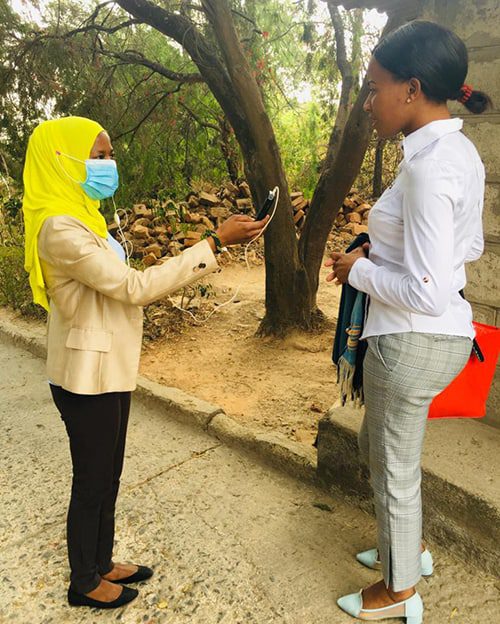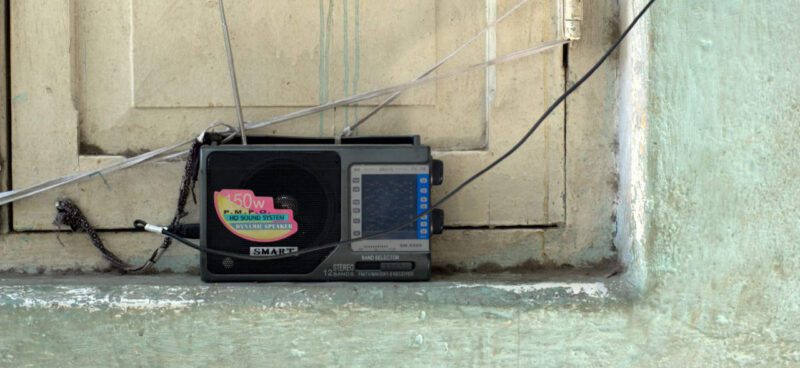By Temigunga Mahondo, Radio Trainer, Internews in Tanzania
“Despite the pandemic, people were not washing hands or social distancing but after our programs, things really changed,” said Betrida Mwasambalila from Chai FM in Rungwe District in Tanzania. “Chai FM is the only radio station around here, so I’m proud to think we helped people stay healthy.”
Chai FM was able to broadcast information about COVID-19 because of funding from Internews. “[Otherwise] I’d have fallen into the usual trap of covering commercial or political stories, to raise revenue from vested interests,” adds Mwasambalila.
Community stations helped by additional funding

Aware that drop in advertising revenue means a cash crisis for local radio, Internews is providing stipends to partner stations in Tanzania so journalists can afford to travel to remote areas and produce community-based news and features to raise local awareness of COVID-19.
Highlands FM reporter Asha Athuman says listeners in Mbeya responded quickly. She was encouraged by the phone calls and SMS messages the station received and the way listeners joined discussion programs with health experts.
”In this digital era, it’s easy to be misinformed,” said Amani Mwaswongwe, a Highlands FM listener. “To avoid this, I sometimes call the station on their live health programs to ask questions about COVID-19 facts which I have heard or read over the Internet.”
Local officials respond to radio reports
Hafidh Ali, news editor at Iringa’s Nuru FM, says wearing masks and hand washing were not taken seriously until his team started broadcasting stories about why these measures are important. “For example, we interviewed local officials about their plans to prevent COVID-19 and soon afterwards, they provided soap and water in local markets.”
Ali adds that the stipends from Internews allow them to report from the community; otherwise they would just be reporting the government angle.
Internews is also providing protective items, such as masks, so that journalists can report safely from their communities.
Additional support for covering elections
In addition to supporting COVID-19 reporting, Internews also provides funding, training and mentoring to help journalists safely cover Tanzania’s elections. Anna Myamba from Ice FM in Makambako says this will help listeners when they vote. “As a journalist, you meet politicians. It’s easy to fall for their promises and become biased. But now I report objectively on all politicians regardless of their financial power.”
Maria Kyando a Makambako resident, says the radio’s elections programming are valuable. “Ice FM’s programs have helped us realize that women do not belong in the kitchen but also have the right to vote and be leaders. This kind of program is what the society needs.”
Michael Ngilangwa, a reporter from Uplands FM in Njombe, says the election training helps him to report in a conflict-sensitive way: “I’m sure my focus on peaceful political campaigns has helped maintain peace in our rural areas.”
Boresha Habari is a five-year media and civil society strengthening program implemented by Internews in Tanzania and funded by United States Agency for International Development (USAID).
(Banner photo: Tanzania radio by Enrique Mendizabal/Flickr/CC)
